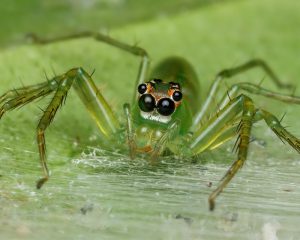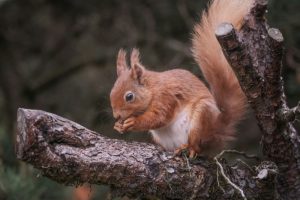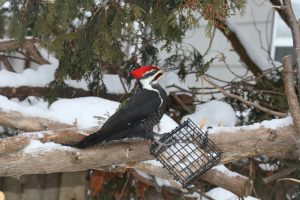- The Lifespan of Osteoclasts: How Long Do They Live?
- What is Monkfish average lifespan?
- What is Amberjack average lifespan?
- What is Sturgeon average lifespan?
- What is Barramundi average lifespan?
- What is Wahoo average lifespan?
- What is Shark average lifespan?
- What is Redfish average lifespan?
- What is Marlin average lifespan?
- What is Pompano average lifespan?
- What is Rainbow Trout average lifespan?
- What is Swordfish average lifespan?
- What is Anchovy average lifespan?
- What is Grouper average lifespan?
- What is Halibut average lifespan?
- What is Carp average lifespan?
- What is Pike average lifespan?
- What is Flounder average lifespan?
- What is Tilapia average lifespan?
- What is Sardine average lifespan?
What Do Spiders Eat and Drink? Diet of small spiders

Spiders are among the most common arachnids found in homes and natural environments. They play a crucial role in ecosystems by controlling insect populations and maintaining balance. Understanding what spiders eat and drink can provide insight into their behavior and help homeowners manage their presence more effectively.
Basic Spider Diet
Spiders are primarily carnivorous and feed on a variety of small invertebrates. Their diet mainly consists of insects such as flies, mosquitoes, and ants. Spiders employ different hunting techniques depending on their species:
- Web-Building Spiders. These spiders, like orb-weavers and house spiders, create intricate webs to trap flying insects. Once an insect becomes ensnared, the spider injects venom to immobilize it before consuming it.
- Active Hunters. Spiders such as wolf spiders and jumping spiders do not use webs. Instead, they actively search for prey. They rely on speed and agility to catch insects, and sometimes use venom to subdue their catch.
- Ambush Predators. Some spiders, like the crab spider, wait patiently for prey to come close before striking. They rely on camouflage and surprise to capture their food.

What Do Small Spiders Eat
Small spiders, frequently encountered in and around homes, have dietary habits that mirror those of their larger relatives, though they tend to target smaller prey. Among the common small spiders are cobweb spiders and cellar spiders. Cobweb spiders are notable for their irregular, sticky webs which they construct in corners and less disturbed areas. These webs are designed to capture small insects, such as gnats and fruit flies, which become ensnared and provide a meal for the spider.
Cellar spiders, recognizable by their long legs and delicate, less sticky webs, also play a role in controlling insect populations. They feed on tiny insects and mites, often relying on their persistence and speed to capture prey rather than the stickiness of their webs.
The diet of small spiders generally consists of these diminutive creatures, with the spiders adapting their feeding strategies to the type of web they construct and the specific insects they encounter in their environment.
What Do Spider Eat and Drink in Your Home
Spiders in homes often prey on common household insects, including:
- Flies: Houseflies, fruit flies, and gnats are common targets.
- Ants: Small ants, such as pharaoh ants or sugar ants, can be a food source for spiders.
- Beetles: Carpet beetles and flour beetles may also be consumed by spiders.
Spiders require water to survive, but they do not drink as frequently as many other animals. Instead, they usually obtain the moisture they need from their prey or from environmental sources. In a home environment, spiders can find moisture in various ways. They may drink from water droplets on plants or from areas with high humidity, such as bathrooms or kitchens, where condensation tends to accumulate.
Additionally, spiders might access small pools of water that can be found in sinks, pet dishes, or even from leaky pipes. These sources provide the necessary hydration for spiders, allowing them to thrive even in indoor settings.
Diet of Common House Spiders
Several spider species commonly found in homes have distinct dietary preferences tailored to their environment. House spiders, including the common house spider, typically feed on a variety of indoor insects such as flies and cockroaches. Their diet helps them manage pest populations within the home.
On the other hand, the brown recluse spider is known for favoring darker, undisturbed areas. This spider preys on insects like beetles and other small invertebrates that it encounters in these secluded spots. Each house spider species has evolved to adapt to its specific environment and the availability of prey, which aids in its survival and proliferation within domestic settings.

Benefits of Spiders in the Home
Spiders offer numerous benefits, particularly in the realm of pest control. By feeding on a variety of insects, they help to manage and reduce other pest populations, which can lessen the need for chemical pest control methods. This natural form of pest management is both effective and environmentally friendly.
Additionally, spiders play a crucial role in maintaining ecosystem balance. They not only help control insect populations but also serve as prey for other animals, contributing to the overall health and stability of their habitats.
Misconceptions and Facts
There are many myths about spiders that can lead to misunderstandings. One common myth is that spiders eat larger animals or even humans. In reality, spiders primarily consume small invertebrates and lack the size and strength necessary to capture and eat larger animals.
Another prevalent misconception is that all spiders are dangerous and venomous. However, most spiders are harmless to humans. Their venom is specifically adapted for subduing small prey, not for attacking humans. These misconceptions often overshadow the important ecological roles that spiders play, such as controlling insect populations and maintaining ecosystem balance.

Understanding what spiders eat and drink helps demystify these common arachnids and highlights their beneficial role in controlling pests. While spiders may seem intimidating, they are valuable allies in maintaining a balanced ecosystem. Recognizing their dietary habits can foster a greater appreciation for their role and contribute to effective pest management strategies.



